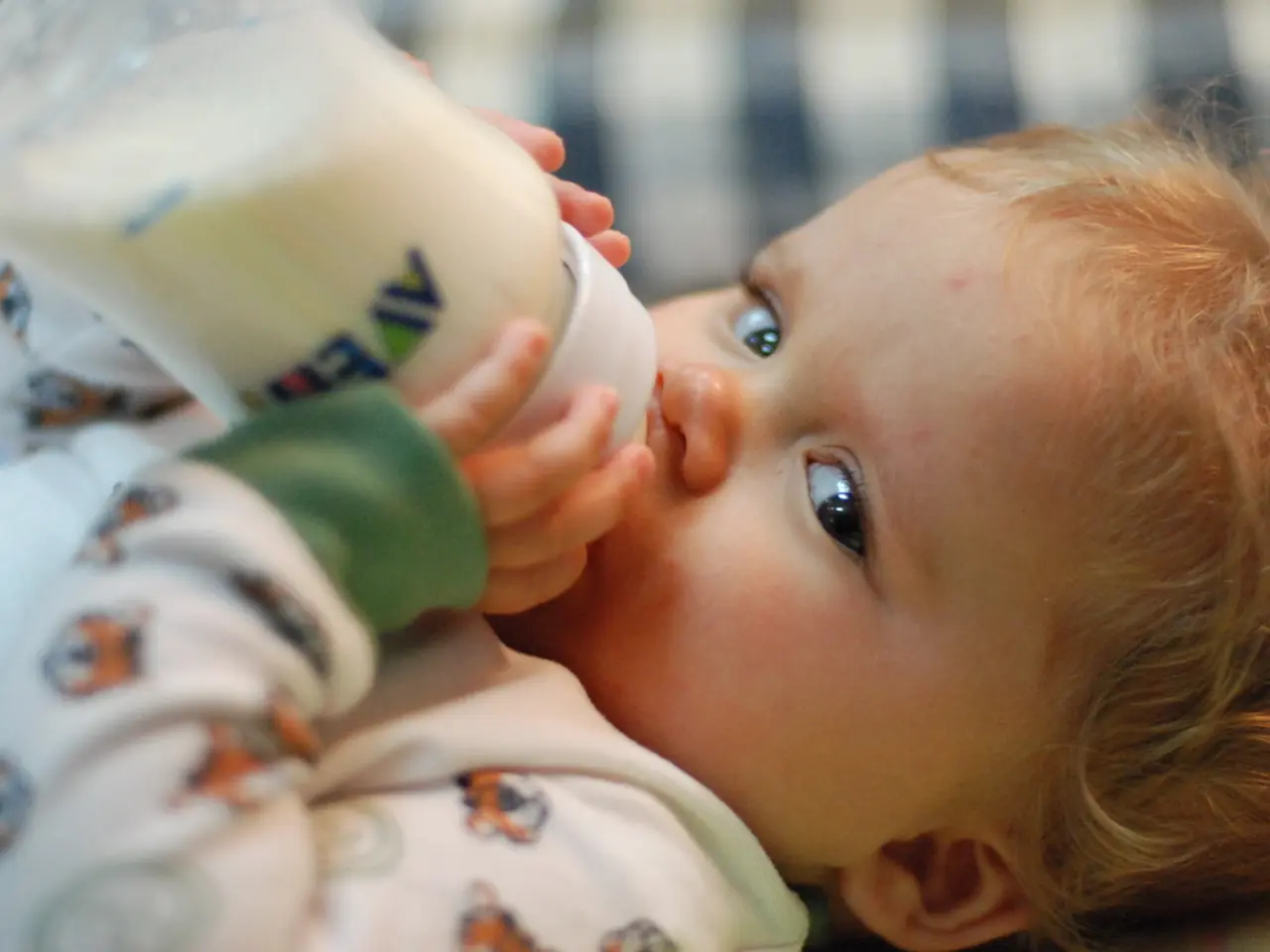Developmental Milestones for a Seven to Nine Month Old Baby in Nigeria: Insights and Anticipations
At 7-9 months, Nigerian babies experience remarkable growth and development in various domains, aligning with global infant development patterns.
Physical and Motor Development
During this period, babies showcase advanced motor skills, such as crawling or preparing to crawl by lifting themselves up during tummy time. They also develop better hand-eye coordination, can sit without support, and may start to pull themselves up to stand.
Cognitive Development
This age marks significant growth in problem-solving and learning abilities. Babies become more curious, exploring objects with more interest, like reaching for and manipulating toys. Their cognitive skills are stimulated through sensory play and learning cause-effect relationships.
Communication Development
Babbling becomes more pronounced between 7-9 months, with babies experimenting with various sounds and pitches. Exposure to baby talk and singing is beneficial, as research shows infants respond well to higher pitch tones, and early verbal interactions can enlarge vocabulary by age two.
Emotional and Social Development
Babies start expressing a wider range of emotions and form stronger social bonds. Activities that promote social-emotional skills help them manage feelings, recognize others’ emotions, and develop a sense of self. Face-to-face playtime is critical for these skills.
While there are no unique differences specified for Nigeria, caregivers can support development through culturally relevant activities that encourage movement, communication, and social interaction. Tummy time, singing nursery rhymes, baby talk, and interactive play are practical ways to foster these key developmental areas at 7 to 9 months.
Supporting Development
Parents can facilitate language development by reading books aloud, singing songs and rhymes, responding to babbling, expanding on words, and creating a consistent routine. Engaging in regular conversations and interactions plays a pivotal role in fostering language development, as babies grasp language by observing and listening to adults.
It is important to provide a secure and supportive environment to promote the emotional well-being of babies during this stage. This can be achieved by creating a consistent routine, responding promptly and affectionately to their needs, providing physical comfort, offering a safe and stimulating environment, and showing love and affection.
Nutrition and Safety
Introducing solid foods is crucial at this stage to meet the growing nutritional requirements of the baby. A balanced diet consisting of different food groups is important for the baby's overall development. Creating a secure environment is paramount, as babies are curious explorers and ensuring a safe space allows them to venture freely without potential hazards.
Every baby develops at their own pace, and it is important for parents in Nigeria to enjoy the journey of parenthood and embrace the unique development of their baby. By providing the necessary support and love, parents can ensure a healthy and happy growth for their baby during the 7-9 months period.
[1] World Health Organization. (2021). Child Growth and Development. Retrieved from https://www.who.int/news-room/fact-sheets/detail/child-growth-and-development [2] UNICEF. (2021). Early Childhood Development. Retrieved from https://www.unicef.org/earlychildhooddevelopment/index_78349.html [3] National Literacy Trust. (2021). Early Years. Retrieved from https://www.literacytrust.org.uk/projects/early-years/ [4] Nigerian Institute of Medical Research. (2021). Child Health and Development. Retrieved from https://nimm.gov.ng/research/child-health-and-development/ [5] Nigerian Pediatric Society. (2021). Child Health and Development. Retrieved from https://www.nigerianpediatricsociety.org/child-health-and-development/
- At 7-9 months, Nigerian babies are learning to crawl or prepare to crawl during tummy time, demonstrating advancements in physical and motor development.
- As their cognitive abilities grow, these babies are becoming more curious, showing an interest in exploring objects and learning cause-and-effect relationships.
- Communication development involves more pronounced babbling, with babies experimenting with various sounds and pitches during this period.
- Emotional and social development is evident as babies start expressing a wider range of emotions and forming stronger social bonds.
- Parents can facilitate language development through activities like reading books aloud, singing songs, and creating a consistent routine.
- Ensuring a secure and supportive environment is essential for emotional well-being, which can be achieved by creating a consistent routine, responding promptly to needs, and providing physical comfort.
- Nutrition plays a crucial role in a baby's development during this stage, with the introduction of solid foods necessary to meet their growing nutritional requirements.
- Safety is paramount, as babies are curious and exploring, requiring a safe environment free from potential hazards.
- By loving and supporting their babies, parents in Nigeria can ensure a healthy and happy growth during the 7-9 months period, aligning with global infant development patterns.




